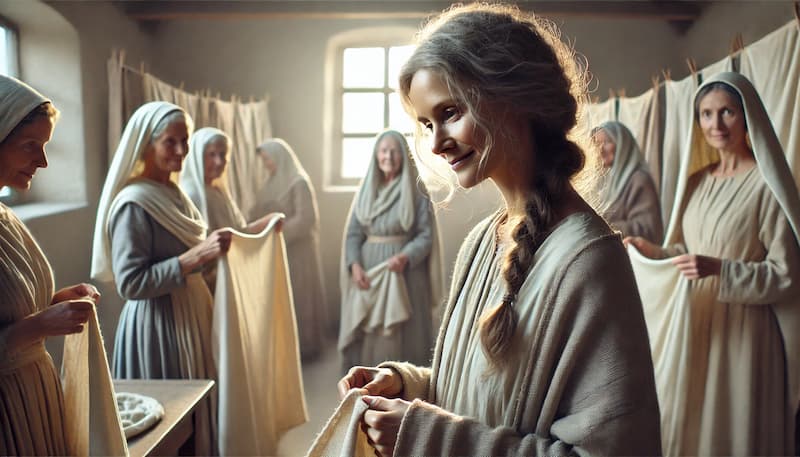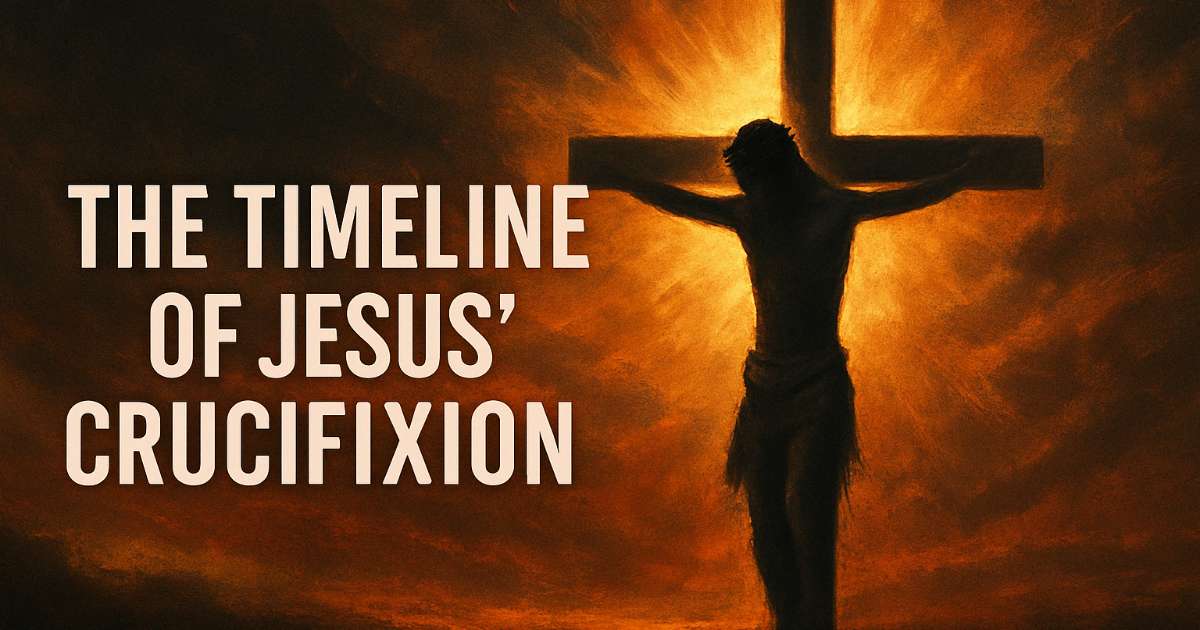There are many lesser-known women of the Bible whose actions played crucial roles in God’s plan. While many are familiar with figures like Mary, Ruth, and Esther, there are other women whose stories are equally inspiring but less well-known.

Let’s explore the lives of six such women, delving into the historical and spiritual context of their times, and understanding how their actions contributed to God’s greater purpose.
1. Jael

Scripture Reference: Judges 4-5
To understand Jael’s story, we need to go back to the time of the Judges in Israel. After Joshua’s death, the Israelites fell into a cycle of disobedience. They would turn away from God, face oppression from enemy nations, cry out to God, and then God would raise up a judge to deliver them.
In Jael’s time, the Bible tells us, “Again the Israelites did evil in the eyes of the Lord, now that Ehud was dead. So the Lord sold them into the hands of Jabin king of Canaan, who reigned in Hazor” (Judges 4:1-2). For twenty years, Jabin cruelly oppressed the Israelites.
During this time, Deborah was judging Israel. She was a prophetess and the only female judge mentioned in the Bible. God spoke through Deborah, telling Barak to lead an army against Sisera, the commander of Jabin’s army. Deborah prophesied that the Lord would give Sisera into the hands of a woman (Judges 4:9).
Jael wasn’t an Israelite. She was the wife of Heber the Kenite, who had good relations with Jabin’s people. The Kenites were descendants of Moses’ father-in-law, traditionally allies of Israel but in this case, neutral in the conflict.
When Barak’s army defeated Sisera’s forces, Sisera fled on foot to Jael’s tent. Jael went out to meet him, saying, “Come, my lord, come right in. Don’t be afraid” (Judges 4:18). She gave him milk to drink and covered him with a blanket when he asked for water.
Sisera told Jael to stand guard and deny his presence if anyone came looking. But when Sisera fell into a deep sleep, Jael took a tent peg and a hammer. The Bible describes what happened next in vivid detail: “She drove the peg through his temple into the ground, and he died” (Judges 4:21).
When Barak came in pursuit of Sisera, Jael went out to meet him and showed him Sisera’s dead body. The Bible records Deborah and Barak’s victory song, which praises Jael: “Most blessed of women be Jael, the wife of Heber the Kenite, of tent-dwelling women most blessed” (Judges 5:24).
Jael’s actions played a crucial role in God’s plan to deliver Israel from oppression. Though she wasn’t an Israelite, God used her to fulfill His promise spoken through Deborah that Sisera would be delivered into the hands of a woman. Her brave act brought an end to Jabin’s oppression and gave Israel forty years of peace.
This story reminds us that God can use anyone, even those outside the community of faith, to accomplish His purposes and bring deliverance to His people.
2. Abigail

Scripture Reference: 1 Samuel 25
Abigail’s story takes place during a tumultuous time in Israel’s history. Saul was still king, but God had rejected him and chosen David as the next king. David, anointed by Samuel but not yet on the throne, was living as a fugitive because Saul was trying to kill him.
During this time, David and his men were living in the wilderness, providing protection to the shepherds and flocks in the area. This was a common practice – in exchange for this protection, the wealthy landowners would provide food and supplies to David’s men.
It was in this context that David sent messengers to a wealthy man named Nabal, whose property was in Carmel. It was sheep-shearing time, a festive season when landowners were traditionally generous.
The Bible introduces us to Abigail and Nabal with a striking contrast: “His name was Nabal and his wife’s name was Abigail. She was an intelligent and beautiful woman, but her husband was surly and mean in his dealings—he was a Calebite” (1 Samuel 25:3).
When David’s men asked Nabal for provisions, he insulted them and refused to help, even though David and his men had protected Nabal’s shepherds. When David heard about this, he set out with 400 armed men, intending to kill Nabal and all the men in his household.
But one of Nabal’s servants told Abigail what had happened. Without telling her husband, Abigail quickly gathered a large amount of food and drink and went to meet David.
When Abigail met David, she got off her donkey and bowed down before him. She gave a long and wise speech, taking responsibility for her husband’s actions and asking David to spare her household.
Abigail said, “Please forgive your servant’s presumption. The Lord your God will certainly make a lasting dynasty for my lord, because you fight the Lord’s battles, and no wrongdoing will be found in you as long as you live” (1 Samuel 25:28).
David listened to Abigail and called off his attack. When Abigail told Nabal what had happened the next day, “his heart failed him and he became like a stone” (1 Samuel 25:37). Ten days later, the Lord struck Nabal and he died.
When David heard that Nabal was dead, he sent a message to Abigail, asking her to become his wife. Abigail quickly agreed, and the Bible tells us she became one of David’s wives.
Abigail’s wisdom and quick action played a significant role in God’s plan for David and Israel. By preventing David from taking vengeance, she kept him from bloodguilt that could have marred his future reign. Her words to David also affirmed God’s promise of a dynasty, encouraging David in his faith during a difficult time.
Through her marriage to David, Abigail became part of the royal line that would eventually lead to the Messiah, Jesus Christ. Her story shows how God uses wisdom and peacemaking to shape the course of history and protect His chosen leaders.
3. Rizpah

Scripture Reference: 2 Samuel 21:1-14
Rizpah’s story occurs during the reign of King David, but it’s deeply connected to the previous reign of King Saul. The Bible tells us that there was a famine in the land for three years, and David sought the Lord about it.
This famine was a result of Saul’s actions years earlier. The Lord told David, “It is on account of Saul and his blood-stained house; it is because he put the Gibeonites to death” (2 Samuel 21:1).
The Gibeonites were not Israelites, but in Joshua’s time, they had made a treaty with Israel. Saul, in his zeal, had tried to annihilate them, breaking this long-standing treaty. Now, years later, the consequences of this action were affecting all of Israel.
To make atonement, the Gibeonites asked for seven of Saul’s male descendants to be handed over to them. This practice of handing over individuals to atone for a crime was not uncommon in ancient Near Eastern cultures.
Rizpah was a concubine of Saul, which meant she had a lower status than a wife but her children were still considered part of the royal family. She had borne Saul two sons: Armoni and Mephibosheth (not the same Mephibosheth who was Jonathan’s son).
King David chose Rizpah’s two sons and five sons of Merab (Saul’s daughter) to be handed over. The Gibeonites killed them and exposed their bodies on a hill before the Lord.
Then comes Rizpah’s incredible act of devotion. The Bible tells us: “Rizpah daughter of Aiah took sackcloth and spread it out for herself on a rock. From the beginning of the harvest till the rain poured down from the heavens on the bodies, she did not let the birds touch them by day or the wild animals by night” (2 Samuel 21:10).
For months, Rizpah kept watch over the bodies of her sons and the other victims. She protected them from birds during the day and wild animals at night.
When David heard about what Rizpah had done, he was moved to action. He gathered the bones of Saul and Jonathan from the citizens of Jabesh Gilead, and the bodies of those who had been killed and exposed. He buried the bones of Saul and Jonathan in the tomb of Saul’s father Kish. After this, the Bible says, “God answered prayer in behalf of the land” (2 Samuel 21:14).
Rizpah’s actions, though born of personal grief, played a crucial role in God’s plan to bring healing and restoration to Israel. Her vigil brought attention to the need for proper burial and respect for the dead, even in times of judgment.
Her devotion moved King David to take action, leading to the proper burial of Saul and Jonathan. This act of respect for the previous king helped to bring closure to a difficult chapter in Israel’s history and paved the way for God to answer prayer and end the famine.
4. Jehosheba
Scripture Reference: 2 Kings 11:1-3, 2 Chronicles 22:10-12
Jehosheba’s story takes place during one of the darkest periods in the history of Judah, the southern kingdom of Israel. Her actions preserved the Davidic line when it was in danger of being wiped out entirely.
To understand the context, we need to go back a few generations. Jehosheba’s father, King Jehoram of Judah, had married Athaliah, the daughter of the infamously wicked King Ahab and Queen Jezebel of Israel. This marriage was likely a political alliance, but it brought the worship of Baal into Judah.
Jehoram “walked in the ways of the kings of Israel” (2 Chronicles 21:6), meaning he promoted idolatry. After Jehoram’s death, his son Ahaziah became king. Ahaziah also did evil in the eyes of the Lord, as he was advised by his mother Athaliah to do wicked things (2 Chronicles 22:3-4).
When Ahaziah was killed, Athaliah saw her chance to seize power. She proceeded to kill all the royal princes—her own grandchildren—to secure her position on the throne.
It was in this moment of crisis that Jehosheba acted. As the daughter of King Jehoram and the wife of the high priest Jehoiada, she was uniquely positioned to intervene.
The Bible tells us: “But Jehosheba, the daughter of King Jehoram and sister of Ahaziah, took Joash son of Ahaziah and stole him away from among the royal princes, who were about to be murdered. She put him and his nurse in a bedroom to hide him from Athaliah; so he was not killed” (2 Kings 11:2).
For six years, Jehosheba and her husband Jehoiada kept Joash hidden in the temple while Athaliah ruled the land. When Joash was seven years old, Jehoiada the priest brought him out and crowned him king. Athaliah was then put to death, and the worship of the Lord was restored in Judah.
Jehosheba’s brave action played a pivotal role in God’s plan to preserve the Davidic line. God had promised David that his descendants would always sit on the throne, and ultimately, the Messiah would come from his lineage.
By saving Joash, Jehosheba ensured that this promise was not thwarted. Her act of courage, in collaboration with her husband’s priestly leadership, not only preserved the royal line but also led to the restoration of true worship in Judah.
This story demonstrates how God can use individuals in positions of influence to protect His plans and bring about spiritual renewal, even in the darkest times.
5. Priscilla

Scripture Reference: Acts 18:2-3, 18, 26; Romans 16:3-5; 1 Corinthians 16:19; 2 Timothy 4:19
Priscilla’s story takes place during the early days of the Christian church, a time of rapid growth and also persecution. The gospel was spreading beyond Jerusalem and Judea to the wider Roman world.
The first mention of Priscilla and her husband Aquila comes in the context of the Roman emperor Claudius expelling all Jews from Rome around 49 AD. This expulsion was likely due to disturbances in the Jewish community over disputes about Jesus being the Messiah.
As a result, many Jewish Christians, including Priscilla and Aquila, were forced to leave Rome. They settled in Corinth, where they met the apostle Paul during his second missionary journey.
The fact that Priscilla and Aquila were tentmakers like Paul gives us insight into the practical realities of missionary work in the early church. Many, like Paul, supported themselves through a trade while also being involved in ministry.
Priscilla and Aquila became close friends and co-workers with Paul in spreading the gospel. They traveled with Paul from Corinth to Ephesus, where they stayed while Paul went on to Syria.
In Ephesus, Priscilla and Aquila met Apollos, a learned man with a thorough knowledge of the Scriptures. The Bible tells us: “He began to speak boldly in the synagogue. When Priscilla and Aquila heard him, they invited him to their home and explained to him the way of God more adequately” (Acts 18:26). It’s worth noting that Priscilla’s name is mentioned before her husband’s, which some think might show her prominence in teaching.
Paul mentions Priscilla and Aquila several times in his letters. In Romans 16:3-5, he writes: “Greet Priscilla and Aquila, my co-workers in Christ Jesus. They risked their lives for me. Not only I but all the churches of the Gentiles are grateful to them. Greet also the church that meets at their house.“
This shows that Priscilla and Aquila hosted a church in their home and were well-known among the early Christians. Paul’s high regard for them is clear when he calls them his “co-workers in Christ Jesus” and mentions that they risked their lives for him.
Priscilla’s role in God’s plan for the early church was significant. As a teacher and mentor, she helped to deepen the understanding of the gospel, even among eloquent preachers like Apollos. Her partnership with her husband in ministry and their support of Paul’s work contributed greatly to the spread of the gospel.
By hosting a church in their home, Priscilla and Aquila provided a nurturing environment for new believers to grow in faith. Their willingness to risk their lives for the gospel demonstrated the kind of sacrificial love that characterized the early church.
Priscilla’s story shows how God uses both men and women, working together, to build His church and spread His message of salvation.
6. Dorcas (Tabitha)

Scripture Reference: Acts 9:36-42
Dorcas’s story takes place in the coastal city of Joppa, modern-day Jaffa in Israel. This was during the early days of the church, shortly after the resurrection and ascension of Jesus. The gospel was spreading rapidly, and the church was growing beyond Jerusalem.
At this time, the apostles were traveling throughout the region, preaching the gospel and performing miracles in Jesus’ name. Peter, one of the leading apostles, was actively involved in this ministry.
The church was also developing its identity and practices. One of the key aspects of the early church was its care for the poor and marginalized, especially widows. In the ancient world, widows were often left without means of support and were particularly vulnerable.
It’s in this context that we meet Dorcas. The Bible introduces her as “a disciple named Tabitha (in Greek her name is Dorcas)” (Acts 9:36). The use of both her Aramaic and Greek names suggests she was known in both Jewish and Gentile communities, reflecting the expanding reach of the early church.
Dorcas was known for her good works and acts of charity. The Bible tells us she “was always doing good and helping the poor” (Acts 9:36). Specifically, she was known for making robes and other clothing for widows in her community.
Sadly, Dorcas became sick and died. The Bible describes what happened next: “Her body was washed and placed in an upstairs room. Lydda was near Joppa; so when the disciples heard that Peter was in Lydda, they sent two men to him and urged him, ‘Please come at once!’” (Acts 9:37-38).
When Peter arrived, he was taken to the upstairs room. All the widows stood around him, crying and showing him the robes and other clothing that Dorcas had made while she was still with them.
Peter sent everyone out of the room. Then he got down on his knees and prayed. The Bible tells us what happened next: “Turning toward the dead woman, he said, ‘Tabitha, get up.’ She opened her eyes, and seeing Peter she sat up. He took her by the hand and helped her to her feet. Then he called for the believers, especially the widows, and presented her to them alive” (Acts 9:40-41).
The miracle of Dorcas being brought back to life became known all over Joppa, and the Bible says that “many people believed in the Lord” as a result (Acts 9:42).
Dorcas’s life and miraculous restoration played a significant role in God’s plan for the early church. Her acts of charity exemplified the love and care that were hallmarks of the Christian community, showing how faith should be lived out in practical service to others.
Dorcas’s resurrection through Peter’s prayer demonstrated the power of God working through the apostles, validating their ministry and the message of the gospel. This miracle led many to believe in the Lord, contributing to the growth of the church.
Dorcas’s story illustrates how a life of faithful service, even in seemingly small ways like making clothing, can have a profound impact and be used by God to draw others to Him.
These six women – Jael, Abigail, Rizpah, Jehosheba, Priscilla, and Dorcas – all played important roles in God’s plan during critical moments in Israel’s history and the early church. Their stories, set against the backdrop of their times, show us how God works through individuals in various circumstances to accomplish His purposes.
Jael’s brave act brought deliverance to Israel during the time of the Judges, showing that God can use anyone to fulfill His promises.
Abigail’s wisdom prevented bloodshed and preserved David’s character during his future king’s difficult years as a fugitive.
Rizpah’s devoted mourning moved a king to action, bringing closure to a dark chapter in Israel’s history and paving the way for God’s blessing.
Jehosheba’s courage preserved the Davidic line when it was nearly wiped out, ensuring the continuation of God’s promise to David.
Priscilla’s teaching and hospitality contributed significantly to the spread and deepening of the gospel in the early church.
Dorcas’s life of charity and her miraculous restoration demonstrated the power of faithful service and God’s ability to work through His people.
These women remind us that God uses all kinds of people in many different ways, often in the midst of challenging circumstances. Their stories encourage us to:
- Be ready to act boldly when God calls, even if we feel unlikely or unqualified.
- Use our wisdom and resources to promote peace and protect God’s chosen leaders.
- Stand firm in our convictions, knowing that our faithfulness can move others to action.
- Take courageous steps to protect and nurture the next generation of believers.
- Invest in teaching and mentoring others, partnering in ministry to spread the gospel.
- Serve others practically and consistently, knowing that such service can have eternal impact.
As we reflect on these remarkable women, let us be inspired to live out our faith courageously, using whatever gifts and opportunities God has given us to serve Him and others.
Their stories remind us that every act of faith, wisdom, and service – no matter how small it may seem – can play a crucial role in God’s grand plan of redemption and restoration for the world.




